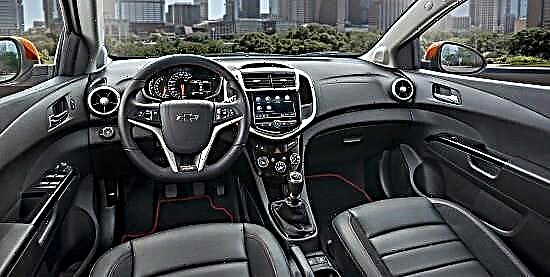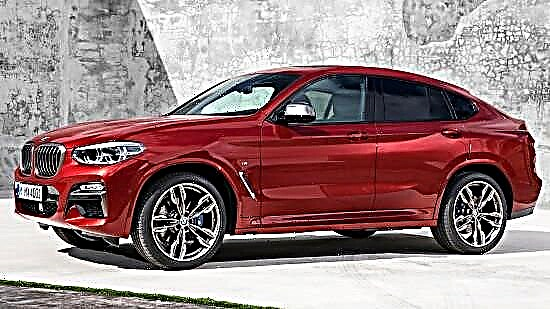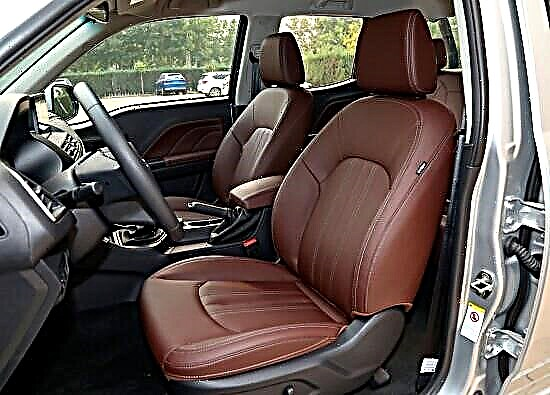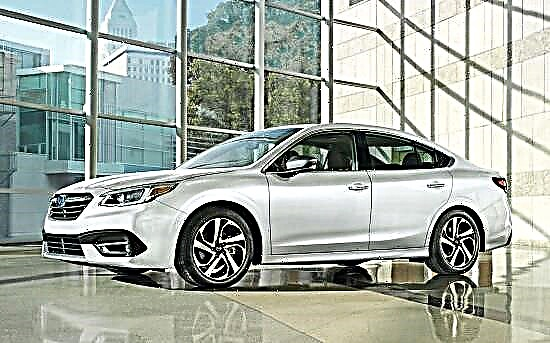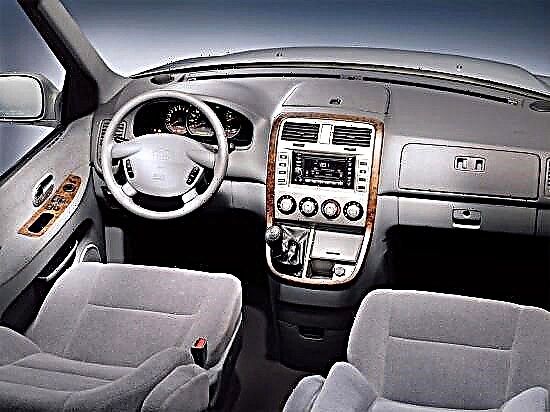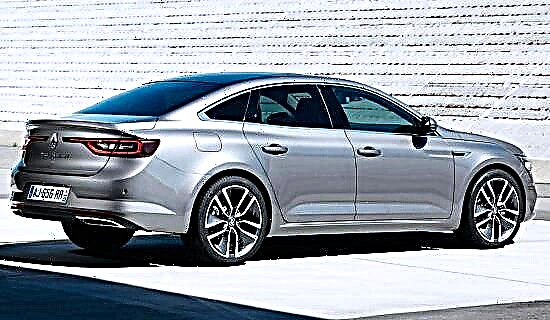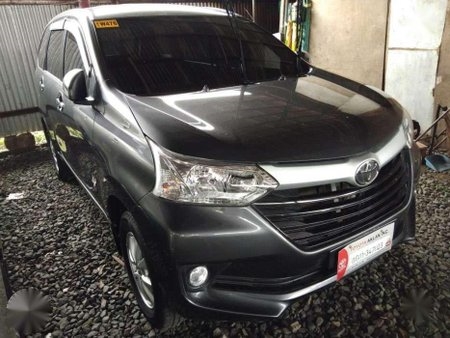Ratings of cars and auto products
Reviews, comparisons & tips for motorists
Toyota's new style has hit the tastes of both Asian countries, Europe and the United States - thanks to this, the updated Corolla has become very popular. The same sketches were used to create the Avensis model, which is distinguished by its large size and understated elegance. Disputes about the appearance will be superfluous here, so it is worth finding out which sedan offers more comfort for its passengers - Avensis or Corolla. In addition, it will be interesting to find out which of the Toyota cars equipped with engines of the same displacement has the best dynamics.
Comfort and cargo transportation
When you get into a Toyota Corolla, you immediately enjoy the seats with a well-designed profile that reliably holds the driver during any maneuvers. In addition, there is no need to complain about ergonomics, since all the keys and switches in the Corolla are close at hand and accessible at any second. The large three-spoke steering wheel of the Toyota Corolla, which in the first moments seems heavy, is actually very comfortable and allows you to drive the car, regardless of minor obstacles like bumps from bumps that respond with dull blows in the cabin. The Toyota manual transmission lever is a little tight in the grooves, however, the gears are very clear, and the distance between the steps is large enough to avoid mistakes. In the maximum configuration, the Toyota Corolla is equipped with a large touchscreen display of the multimedia system and other expensive electronics, but the impression of cheapness remains due to the low height of the front panel and simple finishing materials.
The rear sofa of the Toyota compact sedan can be safely called one of the best in the compact class. Three adults of average height fit freely here, although they still have a "shoulder feeling". However, neither in terms of headroom, nor in terms of the distance to the front row of seats, the Toyota Corolla does not upset its passengers. Trunk volume, equal to 452 liters, cannot be called a record, but Corolla is ahead of many of its competitors in terms of usability of the cargo compartment. The loading height in Toyota is low, and there are no strongly protruding wheel arches or low overhang hinges inside.
If a Corolla or Avensis is being considered, it should be said in advance that a larger sedan has a fairly high cost, which is the reason for the high quality of its interior trim. The tall front panel of the Toyota Avensis looks solid, and the silver plastic of the center console is pleasant to the touch and visually highlights the main controls, allowing you to instantly find the right key. But the large dials of the Avensis dashboard with soft illumination and large digitization look especially beautiful. The equipment of the Toyota Avensis also exceeds all expectations - in the maximum version you can find seven airbags, a multimedia system with a touchscreen display and a standard navigation system, as well as dual-zone climate control.
The front seats of the Toyota mid-size sedan delight with perforated leather upholstery, which reliably holds the person, but upset the insufficiently high backrests, forcing the driver to be constantly in suspense. The rear of the Avensis is even more roomy than the Toyota Corolla, but the headroom isn't too big. Three adults will feel comfortable here, but tall people will suffer from contact with the ceiling on large irregularities. The trunk of Toyota Avensis, with its volume of 509 liters, is also difficult to classify as a record, but in terms of ease of use it is not inferior to the smaller model participating in the comparison. Cargo area Avensis pleases with the correct shape and soft upholstery, allowing you to transport valuable sensitive items.
Dynamic capabilities
In terms of its technical characteristics, Toyota Corolla significantly surpasses its competitors, second only to such recognized leaders as Mazda 3 and Ford Focus. However, the acceleration of the Corolla cannot be called particularly stormy - at low and medium speeds, the engine creates powerful traction, but after the 4500 rpm mark, the dynamics becomes sluggish and uncertain. You have to switch to the next stage early enough, as a result of which the Toyota Corolla loses precious time. If you don't play as a Formula 1 driver, then the Corolla can satisfy the needs of the average driver thanks to the "short" six-speed transmissions and confident movement at low revs. Fuel consumption is relatively low, although with sudden starts from traffic lights in the city, the indicator can come very close to 9 l / 100 km.
The larger Toyota Avensis is equipped with a similar engine, although it develops 10 more horsepower - so it will be very interesting to find out which is better - it or the compact Corolla. I would like to thank Toyota engineers for the work done - the rather big sedan accelerates quickly enough from the minimum revs and is in no way inferior to the smaller model. However, the problem with the lack of traction at high revs remains the same, although it is not so acutely felt. In addition, due to the stretched gears of the five-speed "mechanics" Toyota Avensis takes a lot of time to overtake on the track, making the driver nervous. But fuel consumption does not exceed that of a light Toyota Corolla and fluctuates in the range of 6-8 liters, depending on the driving mode.
Undercarriage comfort
The small Toyota Corolla is positioned as a family car - thanks to this, it is equipped with a sufficiently soft suspension that provides comfort even when passing large bumps. On bad roads, the Corolla's behavior is exemplary due to the lack of hard knocks and jolts. However, it is felt that Toyota has saved on noise insulation, since unpleasant sounds come from under the bottom, distracting the driver from driving. But the very first drive on a broken country road makes you come to terms with this feature - the car retains ideal directional stability and perfectly obeys the steering wheel.
But everything is learned in comparison - on the good asphalt of the intercity highway Toyota Corolla already feels like too soft. Toyota's steering response is sluggish, and roll in tight corners forces you to slow down and give way to vehicles with uncompromising chassis tuning. Although, it is worth giving credit, when driving through small bumps and strong crosswinds, the Corolla does not lose its course and does not make the driver nervous, feeling the shaking of the steering wheel in his hands.
When choosing an Avensis or Corolla, it should be borne in mind that the larger Toyota sedan is designed for young active people rather than practical family men. Its suspension is tighter, which makes the Avensis bounce slightly on particularly large holes or bumps in the road surface. However, there is no question of leaving the chosen direction or jerking the steering wheel - Toyota engineers were able to find truly ideal characteristics. You shouldn't complain about the noise insulation of Toyota Avensis either, since no sounds and unpleasant vibrations penetrate into the cabin.
When driving on a high-quality surface, the behavior of the Avensis begins to delight the driver more and more - the car picks up speed, while maintaining excellent stability. The dynamics are limited only by a rather weak engine - lovers of high-speed driving should order a car with a two-liter diesel or gasoline unit that ideally matches the parameters of the chassis. The Toyota sedan does not roll in corners and does not change trajectory when driving through joints in the road surface. Even long waves on the pavement do not make the Avensis bounce, which makes the car's handling one of the best in its class.
A big difference
Despite the apparent closeness and even the use of common technical solutions, a real chasm lay between the Avensis and Corolla. The midsize sedan outperforms the junior model in many ways, including:
- Dynamics;
- Controllability;
- Space;
- Opportunities in the field of cargo transportation;
- Complete set;
- Profitability.
| Car model: | Toyota Avensis | Toyota Corolla |
| Producing country: | Japan (Build - UK) | Japan (Build - Russia) |
| Body type: | Sedan | Sedan |
| Number of places: | 5 | 5 |
| Number of doors: | 4 | 4 |
| Engine displacement, cubic meters cm: | 1598 | 1598 |
| Power, hp with. / about. min .: | 132/6400 | 122/6000 |
| Maximum speed, km / h: | 200 | 195 |
| Acceleration to 100 km / h, s: | 10,4 | 10,5 |
| Type of drive: | Front | Front |
| Checkpoint: | 5 manual transmission | Variable speed drive |
| Fuel type: | Gasoline A-95 | Gasoline A-95 |
| Consumption per 100 km: | In the city 8.3 / Outside the city 5.4 | In the city 8.2 / Outside the city 5.3 |
| Length, mm: | 4710 | 4620 |
| Width, mm: | 1810 | 1775 |
| Height, mm: | 1480 | 1465 |
| Clearance, mm: | 140 | 150 |
| Tire size: | 205/60 R16 | 195/65 R15 |
| Curb weight, kg: | 1435 | 1290 |
| Full weight, kg: | 2050 | 1760 |
| Fuel tank volume: | 60 | 55 |
The only advantage of the Toyota Corolla is its comfort on bad roads, where it can outperform many of its competitors. In addition, we must not forget about the cost of the car, which is available to many motorists - in times of crisis, this is very important. But if the money issue is not the main factor of choice, then the preference should be given to Toyota Avensis, which is a real modern car: dynamic, economical to maintain, safe and easy to drive.


